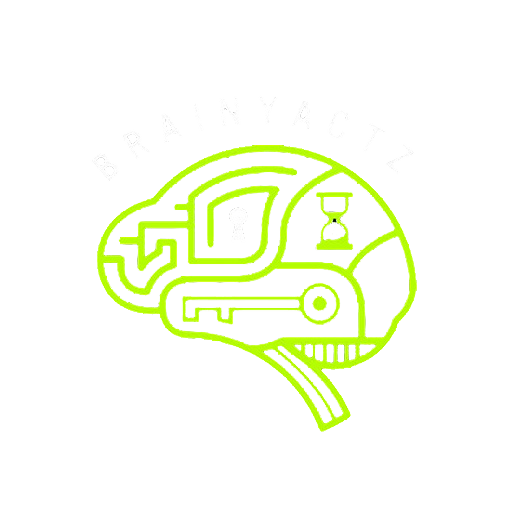Escape rooms are an innovative tool for enhancing leadership skills, combining perception-based challenges with reality-driven scenarios. These immersive experiences allow participants to test and refine their leadership qualities in a controlled, high-pressure environment, similar to real-world business situations. The time-sensitive nature of escape rooms makes them an ideal training ground for future leaders, helping individuals develop essential skills for success in today’s dynamic business landscape. This article explores how escape room challenges can transform leadership development programs.
Key Takeaways
- Escape rooms develop leadership skills through immersive, high-pressure scenarios
- Effective communication and problem-solving are crucial in escape room challenges
- Escape rooms foster teamwork, trust, and conflict resolution among participants
- Leaders learn to make quick decisions and adapt to unexpected changes
- Strategic thinking and resource management are enhanced through escape room experiences
Identifying Leadership Qualities in an Escape Room Setting

Escape rooms are unique training grounds for identifying and honing leadership qualities. These immersive experiences, often enhanced by 3D graphics and internet-connected puzzles, challenge participants with complex scenarios. As teams work to solve puzzles and escape, natural leaders emerge, demonstrating effective communication, decision-making under pressure, and strategic thinking. Interactions within these confined spaces reveal problem-solving skills, teamwork dynamics, and the ability to plan and execute strategies. By observing these behaviors, organizations can identify strengths and areas for improvement in their leadership training programs.
Observing Problem-Solving Approaches
Escape rooms provide a unique environment to observe problem-solving approaches in action. Leaders who excel in these challenges often demonstrate the ability to break down complex problems into manageable parts, similar to solving a mathematical equation. They effectively utilize available resources, from visual cues to logical deduction, showcasing their attention to detail and creative thinking. This setting allows observers to identify individuals who can guide their teams through intricate puzzles, applying logical thinking and demonstrating creative problem-solving skills.
Evaluating Teamwork and Collaboration Skills
Escape rooms provide a unique platform for evaluating teamwork and collaboration skills in a business-like environment. These challenges, similar to digital marketing projects, require participants to work together seamlessly. As teams navigate virtual puzzles, observers can assess how individuals contribute to the group’s success, paralleling collaborative efforts in areas like literature or curriculum development. Key aspects observed include clear communication for efficient project management, task delegation based on strengths for optimal team structure, constructive handling of disagreements for improved team dynamics, and adaptability to new information, reflecting agile business practices.
Understanding Strategic Planning and Execution
Escape rooms offer a unique platform for understanding strategic planning and execution in a condensed timeframe. Teams must quickly assess available resources, prioritize tasks, and allocate responsibilities, similar to strategic thinking in fields like healthcare management or Javascript programming. This process enables observers to identify natural strategists and execution-oriented leaders, providing valuable insights for team-building exercises and training programs.
Building Effective Communication Through Escape Challenges

Escape room challenges offer a unique platform for honing communication skills crucial to effective leadership. As teams navigate intricate puzzles and time-sensitive scenarios, they must employ various communication strategies to succeed. The pandemic has heightened the importance of clear, efficient communication in both virtual and physical settings. Leaders who master these skills can enhance teamwork, streamline processes, and foster innovation. Whether deciphering clues or coordinating complex tasks, escape rooms provide a microcosm for practicing and refining communication techniques that are directly applicable to real-world leadership situations.
Enhancing Verbal and Non-Verbal Communication
Escape room challenges offer a valuable way to enhance verbal and non-verbal communication skills essential for effective leadership. Teams navigate puzzles and scenarios using various communication strategies. Participants observe and analyze behaviors, gaining insights into effective techniques like clear verbal instructions, active listening, body language, and concise written communication. These skills improve team coordination, emotional intelligence, and concept explanation. The high-pressure environment of escape rooms allows for the refinement of these skills, which are directly applicable to real-world leadership and marketing situations, fostering better teamwork and innovation.
Encouraging Clear and Concise Instructions Amongst Team Members
Escape room challenges provide an immersive learning environment that fosters clear and concise communication among team members. As participants navigate virtual escape rooms, they quickly learn the value of precise instructions in achieving collective goals. This process enhances critical thinking skills and organizational abilities, as team members must efficiently convey complex ideas and strategies. The pressure of time constraints in these scenarios sharpens participants’ intelligence, pushing them to distill information into its most essential form for effective communication.
Practicing Active Listening and Feedback
Escape room challenges offer a unique platform for practicing active listening and feedback, essential skills in leadership development. Participants must carefully attend to each other’s ideas and provide constructive feedback to solve complex riddles, mirroring the importance of these skills in medical settings where accurate communication can be life-saving. This gamification of knowledge transfer enhances ethical decision-making and fosters a deeper understanding of team dynamics as players learn to value diverse perspectives and communicate effectively under pressure.
Developing Problem-Solving Skills in High-Pressure Scenarios

Escape room challenges serve as powerful tools for developing problem-solving skills in high-pressure scenarios, mirroring real-world situations leaders face in fields like medicine and health. These immersive experiences require participants to navigate complex puzzles and obstacles, often using language and narrative elements to guide their progress. As teams work against the clock, they must quickly identify and analyze problems, think creatively, and implement effective solutions. The debriefing sessions following these challenges provide valuable insights into team dynamics and individual performance, fostering patience and persistence among participants. By engaging in these intense problem-solving exercises, leaders can enhance their ability to make critical decisions under pressure and adapt to rapidly changing circumstances.
Identifying and Analyzing Problems Quickly
Escape room challenges cultivate leaders’ ability to identify and analyze problems in high-pressure situations swiftly. The immersive atmosphere stimulates participants’ imagination, encouraging them to observe and interpret clues rapidly. This skill translates well to virtual team environments, where quick problem identification is crucial for success. Research published on PubMed has shown that such exercises enhance cognitive flexibility and decision-making speed, key attributes for effective leadership in fast-paced industries.
Encouraging Creative and Out-of-the-Box Thinking
Escape room challenges promote creative and out-of-the-box thinking, which is crucial for effective leadership in high-pressure situations. These experiences encourage participants to tackle problems from unique perspectives, enhancing innovation and adaptability. Engaging in these scenarios helps leaders develop critical evaluation skills relevant to various fields, from science to patient care. The challenges stimulate creative thinking, encourage rapid ideation under time pressure, promote flexible thinking through diverse tasks, and foster team-based innovation in a collaborative environment.
Fostering Patience and Persistence
Escape room challenges excel at fostering patience and persistence in leaders, which are crucial traits for navigating complex problem-solving scenarios. These immersive experiences, often accessed via HTTP protocols, incorporate elements of storytelling and learning theory to create engaging narratives that keep participants motivated despite setbacks. The patience developed in these high-pressure environments translates well to fields like nursing, where maintaining composure under stress is essential for providing quality care.
Fostering Strategic Thinking and Planning Skills

Escape room challenges serve as powerful tools for fostering strategic thinking and planning skills in leaders. These immersive experiences push participants to develop comprehensive strategies, manage limited resources, and adapt to changing circumstances in real time. As teams navigate through complex puzzles and time-sensitive scenarios, they learn to set clear objectives, prioritize tasks, and monitor progress effectively. The high-pressure environment of an escape room forces leaders to make quick decisions while considering long-term consequences, mirroring the demands of real-world leadership roles. Through these challenges, participants gain valuable insights into their strategic planning abilities and learn to refine their approaches for future success.
Setting Clear Objectives and Outlining Strategies
Escape room challenges provide a unique platform for leaders to practice setting clear objectives and outlining strategies. As teams enter the immersive environment, they must quickly establish goals and develop a plan of action to solve the puzzles within the given time frame. This process mimics real-world scenarios where leaders must articulate vision and create roadmaps for success, enhancing their ability to guide teams effectively in high-pressure situations.
Prioritizing Tasks and Managing Resources Efficiently
Escape room challenges excel at teaching leaders to prioritize tasks and manage resources efficiently. As teams tackle complex puzzles under time pressure, they must quickly assess which tasks are critical and allocate their limited resources wisely. This experience hones a leader’s ability to make tough decisions about resource allocation and task prioritization, skills that translate directly to real-world business scenarios.
Monitoring Progress and Making Necessary Recalibrations
Escape room challenges provide an ideal environment for leaders to hone their skills in monitoring progress and making necessary recalibrations. As teams work through complex puzzles and obstacles, leaders must constantly assess their progress against the time limit, identifying bottlenecks and adjusting strategies accordingly. This real-time evaluation and adaptation process mirrors the dynamic nature of modern business environments, teaching leaders to remain flexible and responsive in the face of changing circumstances.
Reflecting on Outcomes to Improve Future Planning and Execution
Escape room challenges provide an invaluable opportunity for leaders to reflect on outcomes and improve future planning and execution. After completing a challenge, teams engage in comprehensive debriefing sessions, analyzing their performance, identifying strengths and weaknesses, and discussing strategies that led to success or failure. This reflective process enhances leaders’ ability to learn from experience, adapt their approaches, and apply newfound insights to real-world scenarios, ultimately refining their strategic planning and execution skills.
Conclusion
Escape room challenges offer a unique and effective platform for enhancing leadership skills in a controlled yet dynamic environment. These immersive experiences foster critical abilities such as effective communication, problem-solving under pressure, teamwork, and strategic planning. Leaders who participate in escape room challenges develop a heightened sense of adaptability, decision-making prowess, and the ability to navigate complex scenarios with limited resources. By engaging in these timed puzzles and obstacles, leaders gain valuable insights into their strengths and weaknesses, ultimately refining their leadership capabilities for real-world applications.

